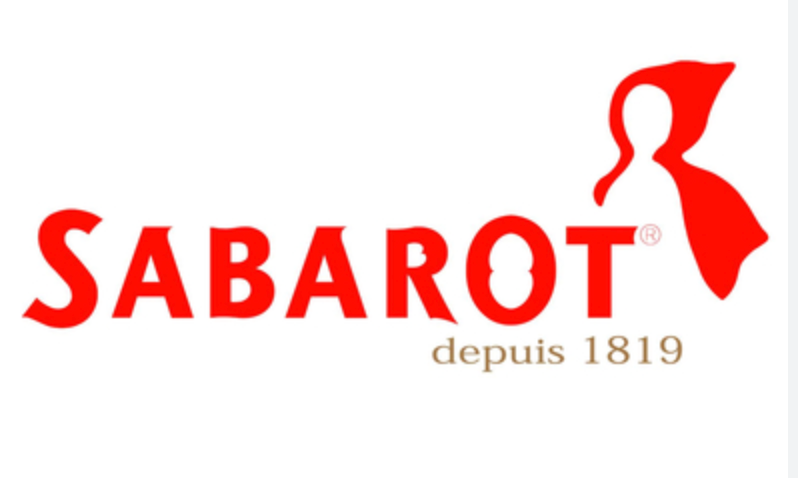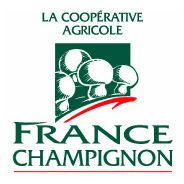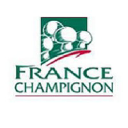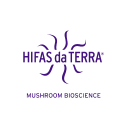Summary
The global mushroom market has experienced a stable growth trajectory, dominated largely by China, which is responsible for over 50% of worldwide production. As consumer awareness of the health benefits of mushrooms increases, demand for different varieties has surged, especially for fresh varieties. Europe, with a €3.3 billion turnover in mushroom sales, caters to this demand with distinct segments for fresh and processed mushrooms. In France alone, there is a reliance on imports, especially from the Netherlands and Poland, to satisfy rising consumer demand for fresh, local products.
The French market is predominated by button mushrooms, constituting 97% of production. However, the interest in Asian medicinal mushrooms, like Shiitake, is also growing, with escalating online engagement suggesting a burgeoning sub-sector. Please note that specific numerical data from 2020 onwards were not provided in the text; information has been summarized with the most recent data available within the text content.
Mushroom market in France: a growing taste for fresh and local varieties
In recent years, the French mushroom market has been characterized by an increasing inclination towards fresh, locally sourced produce. This trend reflects a broader consumer demand for healthier and more sustainable dietary choices. Mushrooms have become a particularly popular vegetable among the French, rising to the sixth position in the country's ranking of favorite vegetables. The demand for mushrooms has led to the cultivation of several types, with button mushrooms being the most cultivated worldwide and the dominant variety within the French market, accounting for nearly 97% of the country's production. However, despite an annual mushroom production turnover of around 250 million euros, domestic consumption in France surpasses production, indicating a reliance on imports to satisfy the local appetite for this versatile vegetable. The majority of these imports come from other EU countries, with the Netherlands and Poland at the helm.
The French palate is not only favoring fresh mushrooms but is also showing a budding interest in exotic varieties, such as Shiitake—a trend that mirrors the global popularity of Asian medicinal mushrooms. Nonetheless, the French market still heavily relies on the tried-and-true button mushroom, which the country produces in regions like Pays de la Loire and Centre-Val de Loire. France's mushroom production, sitting at nearly between 80,000 and 90,000 tons per annum, may be decreasing, but the demand continues to trend upwards. Fresh mushrooms' share in national production has been steadily growing. The trend leans heavily towards locally-sourced fresh products, yet price remains a decisive factor influencing consumer choices.
French consumers have demonstrated a willingness to pay more for locally grown mushrooms, with locally sourced button mushrooms being, on average, between 30 to 40 percent costlier than their foreign counterparts. On the production front, the French mushroom market consists of a small number of producers. Breaking down by regions, the Pays de Loire holds a significant majority, followed by Centre and Picardie. Despite the scarce number of mushroom farms, the sector still plays a significant role in the French economy, employing thousands and sustaining part of the agricultural infrastructure. In contrast, prices for processed mushrooms are on the decline.
A diverse array of champions in the French mushroom industry
The French mushroom market is a landscape of varied and vibrant players, each contributing uniquely to the sector's prosperity. Though differing in their approaches and areas of focus, these companies form the backbone of the mushroom industry in France.
- FLM Ingredients : As a key player in the industrial processing segment, FLM Ingredients operates within a niche where the demand for processed mushrooms is significant. They are pivotal in ensuring that the mushrooms reach the tables in various forms, be it canned, dried, or frozen, catering to both domestic and international markets.
- Champignon Renaud : Renowned for their cultivation prowess, Champignon Renaud stands as a leading force in the realm of mushroom growers. Their expertise ensures a steady supply of button mushrooms, a staple in the French mushroom market, and they contribute significantly to the local economy and the country's culinary landscape.
- France Champignon : As an emblem of resilience and innovation, France Champignon has been a historical and major contributor to the sector. Not only do they grow a substantial volume of mushrooms, but their involvement spans the entire value chain from cultivation to processing and distribution, marking their strong presence in the industry.
- La Ferme de la Gontière : La Ferme de la Gontière has carved out a unique space in the market through their commitment to quality and sustainability. Not just mere growers, they are known for their partnership with prominent grocery chains, thus ensuring that their high-quality produce reaches consumers far and wide.
- Lou Vegetables : Stepping beyond the confines of traditional mushroom cultivation, Lou Vegetables extends its reach into innovative territories. By bridging the gap between agriculture and retail, they adapt to evolving consumer demands and solidify their standing as a contemporary and forward-thinking entity in the mushroom market.
Together, these companies paint a diverse and dynamic picture of the French mushroom industry, each segmenting the market in their own unique fashion, from steadfast growers to versatile processors. Their collective endeavors not only satiate the national appetite for mushrooms but also position France as a notable contender in the global mushroom trade.
to understand this market
Detailed content
 Inforamtion
Inforamtion
- Number of pages : 30 pages
- Format : Digital and PDF versions
- Last update : 29/03/2023
 Summary and extracts
Summary and extracts
1 Market overview
1.1 Definition and scope of study
There are countless varieties of mushroom, but the most widely cultivated in France and around the world are limited to four:
- The button mushroom takes first place: it is by far the most widely cultivated variety in the world. China accounts for over 50% of world production;
- Shiitake, from Asia, is the second most widely produced variety in the world;
- Oyster mushrooms come third;
- Bluefoot closes the list of the most cultivated varieties.
(A specific study on the truffle market is available here).
in addition to these four main varieties, there are a large number of more confidential varieties, most of which grow wild.
France produces almost 100,000 tonnes of mushrooms every year (the vast majority of which are button mushrooms), a quantity that has been declining in recent years, despite a return to prominence in 2021. France thus ranks fourth in Europe in terms of production. French production is concentrated in a few regions: Pays de la Loire, Centre, Picardie, etc.
In fact, 97% of French mushroom production involves button mushrooms. Mushrooms grown in mushroom houses are available all year round, unlike wild mushrooms. These mushroom beds contain manure-based substrates which go through several stages before producing mushrooms for harvesting. When they are to be sold fresh, which is the main market in Europe, the mushrooms are hand-picked, sorted according to their characteristics, refrigerated and stored in a refrigerator. s according to their characteristics, refrigerated and packaged for dispatch to distribution outlets.
Mushrooms that are not sold fresh are said to be processed. This means that, as soon as the harvest is complete, they are delivered to processing plants, where they are appertized (canned), deep-frozen or freeze-dried.
The harvest of woodland mushrooms, estimated at a few thousand tonnes, is not enough to meet French demand, since, in addition to industrially-grown mushrooms, French consumers are fond of "wild" varieties. Moreover, the high volatility of French production reinforces the need for imports.
1.2 A stable global market dominated by China
The many health benefits of mushrooms are driving demand worldwide. This is particularly true of the Asia-Pacific region, which dominates the market with extremely high demand for mushrooms from Japan, China and even India.
North America and Europe are major markets for exotic mushrooms, both in terms of imports and regional ...
1.3 The European market dominated by Poland
In Europe, mushroom production has remained broadly stable in recent years, at around *,***,*** tonnes a year. A distinction is made between fresh and processed mushrooms (***). The desired shelf life, the clientele and transport time all determine the fate of mushroom production.
European mushroom production Europe, **** - ****, in thousands of tons Source: ...
1.4 The French market dominated by button mushrooms
In France, the market is largely dominated by the button mushroom (***), which alone accounts for **% of production. [***] Thus, the share of other mushrooms in French production can be considered negligible on the scale of the national market.
According to the website of[***], the Association Nationale Interprofessionnelle du Champignon de couche, the ...
1.5 Domestic consumption outstrips production
In France, demand for mushrooms is on the rise, particularly demand for fresh mushrooms. According to[***], **% of French production is already destined for the fresh market (***), but this production is far from sufficient to meet national demand. As shown by the mushroom trade balance over the last few years, France imports ...
2 Demand analysis
2.1 A global trend towards local consumption and fresh produce
The French pay close attention to the health, social and environmental impact of their food. This awareness often goes hand in hand with a desire to change towards a more responsible diet. A sustainable trend has been underway for several years now.
Motivations for sustainable food consumption France, ****, in Source: ****
The ...
2.2 French mushrooms: a consumer demand
Mushrooms are one of France's most popular vegetables among consumers. It's common knowledge that mushrooms are good for your health, as evidenced by the plethora of online articles singing their praises.
Mushrooms are also becoming increasingly popular. Between **** and ****, it was in the top * in terms of purchases in the vegetable ...
2.3 Growing overall demand for fresh mushrooms
Mushrooms are fairly common in the French diet. Fresh mushrooms top the list with a penetration rate of **%, followed by appertized mushrooms (***).
Penetration rate of cultivated mushrooms France, **** - ****, in Source: ****
In line with trends towards local consumption and environmental protection, more and more French people prefer fresh produce, available from ...
2.4 Towards a trend for Asian medicinal mushrooms
A great unknown on the European and French markets just a few years ago, even though it is the second most widely consumed mushroom in the world (***), Shiitake is gradually making its appearance in dietary supplements and in several products.this trend is confirmed by the fact that more and more ...
2.5 Close-up of the morel sub-segment
Morels, part of the Morchellaceae family, are edible spring mushrooms. Its nutty taste and distinctive woody aromas make it a rare and delicate prestige mushroom. Morels form a complex group that includes many varieties, some of which are difficult to recognize. However, two groups can be distinguished fairly easily in France: ...
3 Market structure
3.1 A small number of producers in France
In France, the market is organized around producers (***), manufacturers offering preservation solutions, distributors, restaurants and, finally, end customers. Other players operate on the periphery of the market, such as composting centers and suppliers of horse manure, essential for cultivation. Growers, on the other hand, distinguish themselves from the classic wild harvest ...
3.2 A wide variety of growers: from industrial companies to seasonal and hobby growers
The diversity of market players is real. This can be seen by observing the protagonists who share the cultivated mushroom sector. According to[***], there are :
Large-scale industrial companies (***); More extensive producers, sometimes seasonal, who combine this activity with other sources of income (***); Hobbyists, who obtain their supplies from garden centers or ...
3.3 A diversity of production methods
Once again, diversity is reflected in production methods. It goes without saying that each mushroom species has its own specific method.
There are * different cultivation methods for the cultivated mushroom, depending on technical developments (***). Today, cultivation in tubs is the most widespread, but all methods follow the same steps. And * months ...
3.4 Button mushroom processing plants, a discreet but important B2B player in the sector
It's difficult to know what market share these plants hold in France, but it's certain that they are indispensable in mushroom processing and storage.
These factories act as the link between producers and distributors. They source fresh mushrooms from a variety of producers, and diversify the methods and forms of preserving ...
4 Offer analysis
4.1 The main mushroom species
There are hundreds of thousands of mushroom species worldwide. But, as already mentioned several times in this study, very few of them are currently cultivable.
The website[***] offers a typology of the main cultivable mushrooms.
Cultivated mushroom: A smooth, white or blond skin with invisible lamellae and a supple cap. The ...
4.2 Different preservation methods
Source: ****
4.3 Cultivated mushrooms: fresh prices rise, processed prices fall
In line with the growing demand for fresh French cultivated mushrooms, and although the share of fresh production has increased, it is still insufficient to meet demand. As a result, prices for fresh mushrooms have risen in recent years, as shown in the graph below.
Change in the average retail price ...
4.4 A breath of fresh air, with some innovative start-ups boosting the sector
New players have emerged as UFOs among the sector's traditional protagonists. Riding the wave of medicinal mushroom and home-growing trends already widespread in the USA, Canada and the UK, they are reinventing the sector with solutions tailored to the real demand for local, healthy consumption.
As a result, we're seeing a ...
5 Regulations
5.1 Marketing standards and regulations :
As vegetables that are often processed or frozen, mushrooms in all their forms must comply with a number of standards.
The international food standards for fruit and vegetables are listed in this book:[***].
European Union standards for cultivated mushrooms are available in this document [***]
UN and EEC standards:[***]
In general ...
5.2 Picking regulations
Mushroom picking is highly regulated, and in France it's forbidden to sell mushrooms that have been picked on a plot of land you don't own. Picking on private land is therefore punishable by a fine of up to €*** (***)
The[***] website lists the various laws in force concerning mushroom picking:
Article L. ...
5.3 UN Comtrade product identification codes
****** Vegetables ; mushrooms fresh or chilled.
****** Vegetables ; mushrooms of the genus Agaricus whole cut sliced broken or in powder but not further prepared dried.
****** Vegetables ; mushrooms of the genus Agaricus provisonally preserved but unsuitable in that state for immediate consumption.
****** Vegetables ; mushrooms other than of the genus Agaricus and ...
6 Positioning the players
6.1 Segmentation
- Lou Légumes
- La ferme de la Gontière
- France champignon
- Champignon Renaud
- Sabarot-Wassner
- France Champignon (Bonduelle groupe)
- Hifas da Terra
- Walkro
- UpCycle
 List of charts
List of charts
- Main mushroom-producing countries after China
- European mushroom production
- Motivations for sustainable food consumption
- Sales of organic fruit and vegetables
- Strongest growth in vegetables
All our studies are available online in PDF format
Take a look at an example of our research on another market!
Latest news
Companies quoted in this study
This study contains a complete overview of the companies in the market, with the latest figures and news for each company. :
 Choosing this study means :
Choosing this study means :
Access to more than 35 hours of work
Our studies are the result of over 35 hours of research and analysis. Using our studies allows you to devote more time and added value to your projects.
Benefit from 6 years' experience and over 1,500 industry reports already produced
Our expertise enables us to produce comprehensive studies in all sectors, including niche and emerging markets.
Our know-how and methodology enable us to produce reports that offer unique value for money.
Access to several thousand articles and paid-for data
Businesscoot has access to all the paid economic press as well as exclusive databases to carry out its market research (over 30,000 articles and private sources).
To enhance our research, our analysts also use web indicators (semrush, trends, etc.) to identify market trends and company strategies. (Consult our paying sources)
Guaranteed support after your purchase
A team dedicated to after-sales service, to guarantee you a high level of satisfaction. +44 238 097 0676
A digital format designed for our users
Not only do you have access to a PDF, but also to a digital version designed for our customers. This version gives you access to sources, data in Excel format and graphics. The content of the study can therefore be easily retrieved and adapted for your specific needs.
 Our offers :
Our offers :
the mushroom market | France
- What are the figures on the size and growth of the market?
- What is driving the growth of the market and its evolution?
- What is the positioning of companies in the value chain?
- Data from several dozen databases
Pack 5 études (-15%) France
- 5 études au prix de 75,6€HT par étude à choisir parmi nos 800 titres sur le catalogue France pendant 12 mois
- Conservez -15% sur les études supplémentaires achetées
- Choisissez le remboursement des crédits non consommés au terme des 12 mois (durée du pack)
Consultez les conditions du pack et de remboursement des crédits non consommés.





 Sabarot inaugurates its 4.0 plant for pulses and cereals - 31/07/2023
Sabarot inaugurates its 4.0 plant for pulses and cereals - 31/07/2023
 Lou Légumes sets up a mushroom farm in Haute-Loire - 25/11/2022
Lou Légumes sets up a mushroom farm in Haute-Loire - 25/11/2022



















